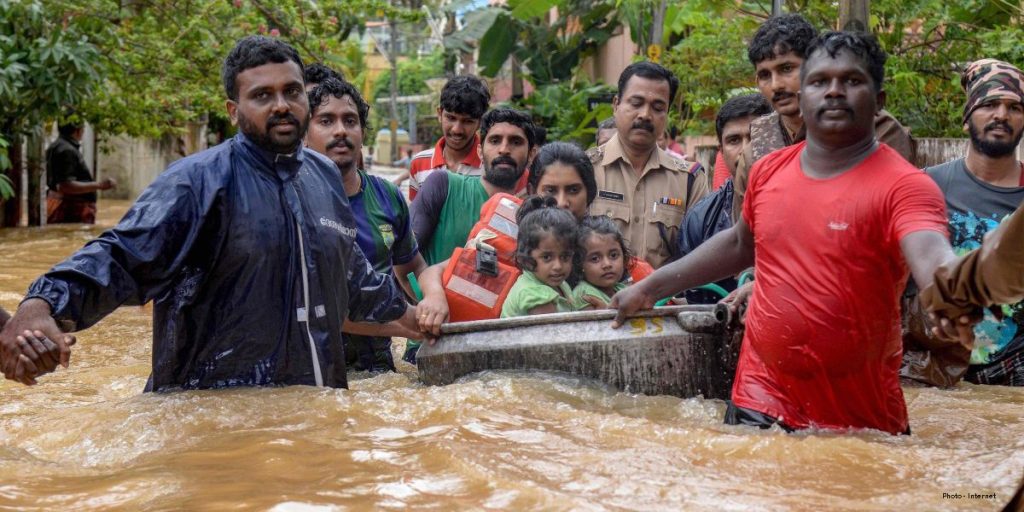CCA Urges Prayers and Solidarity with Victims of Floods in Kerala

The State of Kerala in India is currently experiencing a devastating situation due to heavy floods, unprecedented scale of torrential rains, overflowing of rivers and lakes, release of waters from dams and a series of massive landslides.
Hundreds have been killed and several thousands have been displaced and rendered homeless. While the official death toll is close to 400 as of 20th August 2018, the figures are still rising; many continue to be missing.
Dr. Mathews George Chunakara, General Secretary of CCA offered condolences to the bereaved families and expressed solidarity with the affected people experiencing colossal damage in their lives due to the disaster of this magnitude.
The CCA General Secretary urged all CCA member churches, as well as churches and ecumenical organisations around the world, to pray for and express solidarity with the affected people in Kerala, and also respond urgently to this humanitarian disaster.
An appeal with updates on the situation issued by the CCA based on reports received from CCA member churches and governmental sources described the devastating deluge that the people of Kerala had not faced since 1924.
It was reported that 35 of the 36 dams in the State were forced open, releasing nearly 700,000 litres of water per second.
More than a million people were evacuated or rescued from their homes, and a large number of people left their homes voluntarily to take shelter elsewhere in homes of friends, relatives and well-wishers. Thousands of people have been rendered homeless; more than 740, 000 people now live in 5,645 relief camps set up over the past five days.
The rescue operations and relief support are being coordinated by the State Government agencies. Faith based organisations and volunteers are actively involved in relief operations in local areas, especially to provide food, clothing and medical care in the relief camps.
Almost all churches and other faith based organisations are directly involved in relief operations. Schools, colleges and hospitals owned by churches and other religious organisations have been converted to relief camps. The CCA member churches that are directly involved in relief operations in affected areas include the Church of South India Dioceses in Kerala, Jacobite Syrian Orthodox Church, Malankara Mar Thoma Syrian Church, and Malankara Orthodox Syrian Church.
Rescue operations are being intensified amid frantic calls for help from hundreds of stranded citizens. Hundreds of fishermen from Kerala’s southern coastal districts reached the affected areas in the central and northern parts of the State with their own boats and undertook massive rescue operations, battling strong river currents and heavy rain to bring stranded citizens to safety. The Air Force, Navy and the Coast Guard are involved in rescue operations via helicopters and navy boats.
Thousands of people continue to be stranded in isolated houses in several areas. A respite in rainfall has aided the relief efforts but it will take a gargantuan effort to get all the stranded people to safe shelters. Transportation and communication systems in the State have been ruined as major roads are damaged, telephone networks are down and electricity is cut-off in many areas. The main airport in Kerala has also been closed; trains and buses offer only limited services.
Another disturbing news reported lately was that a parallel crisis unfolded in another low lying region of Kerala, Kuttanad, where rising floodwaters inundated thousands of houses and impelled a mass evacuation.
The CCA General Secretary, a native of Kerala said, “The impact of the devastation will remain long term. There is an urgent need to rebuild and rehabilitate the lives of the people and communities and restore normalcy, for which timely intervention and assistance are needed on a large scale”.
Click here to download Appeal for Prayers and Solidarity with Victims of Floods in Kerala_CCA.pdf










